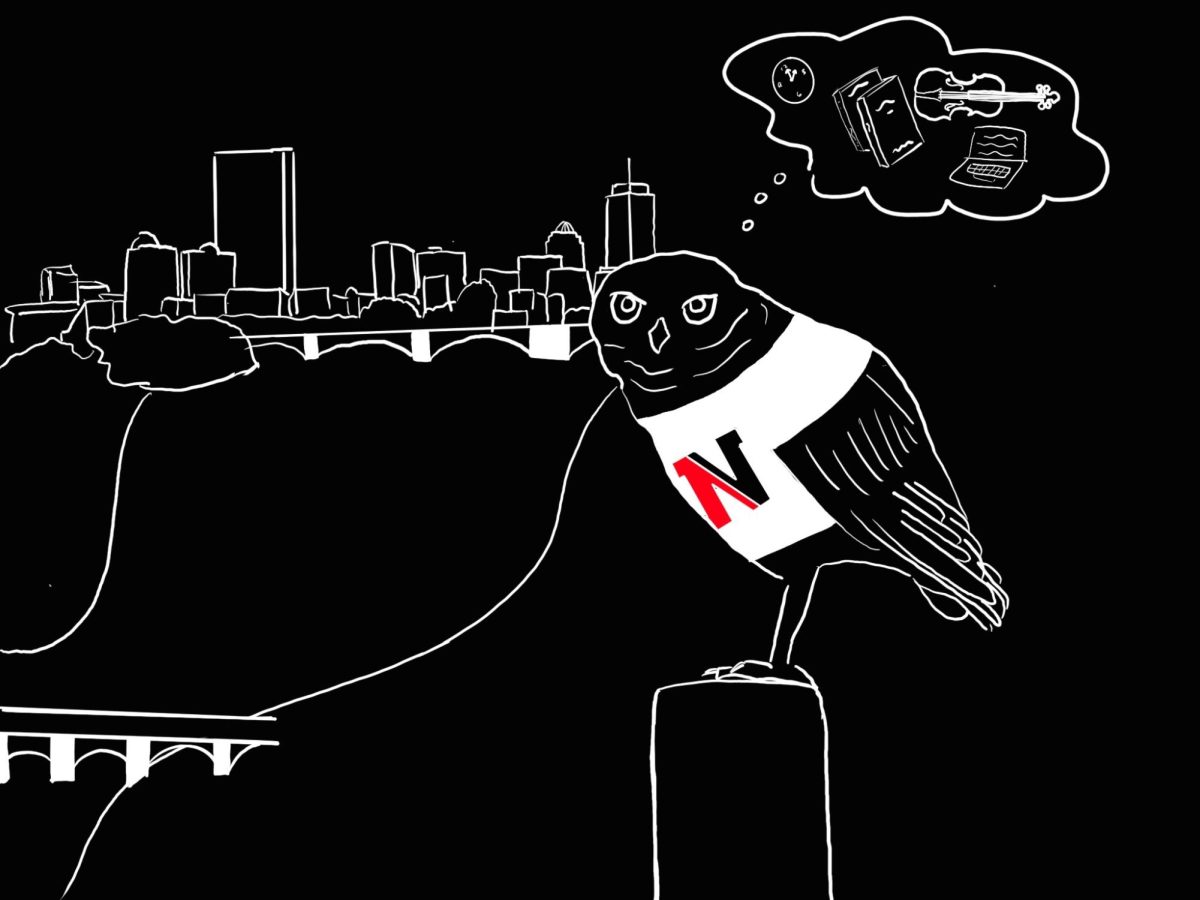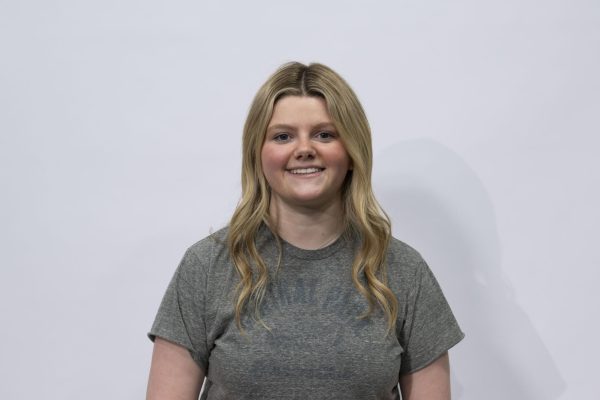Yes, I’m writing this at 4 a.m. I know I shouldn’t keep ruining my sleep schedule. I know I shouldn’t keep dozing off during my afternoon classes. I know the birds’ chirps at the crack of dawn are certainly not meant for me.
Recently, I have been having a mid-college crisis. I am more than halfway done completing my degree, and soon, I’ll be walking across the stage to receive my diploma. Afterward, I wish to obtain a Ph.D. While the idea of overexerting myself and packing in even more late nights for another set of years may sound crazy, the opportunity to be at the forefront of scientific progress entices me and my curiosity.
Sometimes I feel like doing as many things as possible within a day before fitting in just enough hours of sleep to get through my classes. Extracurricular activities consume a lot of my time: I play in the symphony orchestra and a chamber group, research music cognition and a machine learning model to predict success in field hockey and of course, serve as The News’ data editor. If I can, I sneak in a couple of minutes to destress by reading books or playing Genshin Impact.
I could be devoting more hours to sleep, but when will I have more time in my life to dedicate myself to my interests? Will there be another time I can enjoy absorbing the profundity of the masterpieces Bruch, Rimsky-Korsakov, Brahms, Forsyth and Chopin on my three instruments? Will I ever get opportunities to run neuropsychology research to discover how our enjoyment of music relates to neural entrainment? Or time to examine chains of events that lead field hockey players to have a higher probability of scoring a goal?
On top of my extracurricular commitments, I am also determined to excel in my classes. I have been busy this semester taking high-level classes in supervised machine learning, human-computer interaction, large-scale information and retrieval systems and laboratory research design. Thus, I have very little time to toss away on sleep.
There are also some possible advantages to being a night owl. An investigation by the Catholic University of the Sacred Heart in Milan found that people who stay up late have more creativity and originality. Another by the University of Liege in Belgium suggested that night owls have more mental endurance. Satoshi Kanazawa of the London School of Economics and Political Science said that staying up late may be associated with higher intelligence. A study from the University of Alberta indicated we may also have bursts of strength in the evening due to increased motor cortex and spinal cortex excitability. A study from the University of Madrid implied we may be better at reasoning.
I recognize that sleep is a physiological need that I should prioritize over school and my passions. While that is true, some people just work better late in the evening. I’m not saying it’s better to be a night owl than an early bird, but my current work schedule makes this the best option for me. While I need to take periodic power naps to compensate for my sleep deprivation, working at night makes me feel more focused. I always start assignments as early as I can. Yet, starting or continuing to work closer to my bedtime fills me with a subtle underlying pressure that drives me to do as much as I can before I stay up too late. Conversely, if I try to sleep at a reasonable time and get up early to do work, I overestimate how much time I have and don’t feel as motivated to complete my tasks. The Yerkes-Dodson law even justifies how a certain stress level may be necessary to optimize performance.
I firmly cut myself off from work when my roommate wakes up for his early commute to his co-op –– I don’t need the embarrassment of awkwardly encountering him and having him question why I’m up studying for my Graduate Record Examination instead of burying my face in my pillow.
On top of it all, I find the night very beautiful. There is something refreshing about working at Snell in a group study room without the clamor of students packed in the library throughout the morning and afternoon. Occasionally, I am fortunate enough to see the moon shine outside my window, giving me the mental refreshment I need to keep working until I can call it a night (technically early morning).
None of these words are meant to advise that you should not prioritize sleep. Sleep has many benefits, which is why I don’t only restrict myself to two or three hours of sleep every single night. As I mentioned before, I am determined to do well in my classes, so I must sleep to stay relatively alert in my lectures and also to retain all the information I’ve learned so I don’t waste my tuition. However, getting at least seven hours of sleep daily is impossible with how much I want to do before graduation.
I also understand that some are too groggy in the evening to feel productive and would rather be early birds, and that is okay. I do not judge anyone for their work habits. For instance, while procrastination is a questionable habit, some people feel more motivated when pressured to work close to their deadlines. For me, procrastination loads me with too much stress to work well, which the Yerkes-Dodson law can also explain.
I’m more than halfway through the spring semester of my junior year. Afterward, I’ll have only two semesters left to fully immerse myself in Boston and the college experience. So please don’t mind me if you happen to receive a text or email from me at a questionable hour — I’m just trying to get the most out of my time here.
Jethro R. Lee is a third-year data science and psychology combined major. He can be reached at lee.jet@northeastern.edu.

















